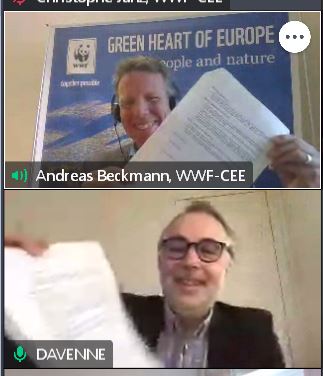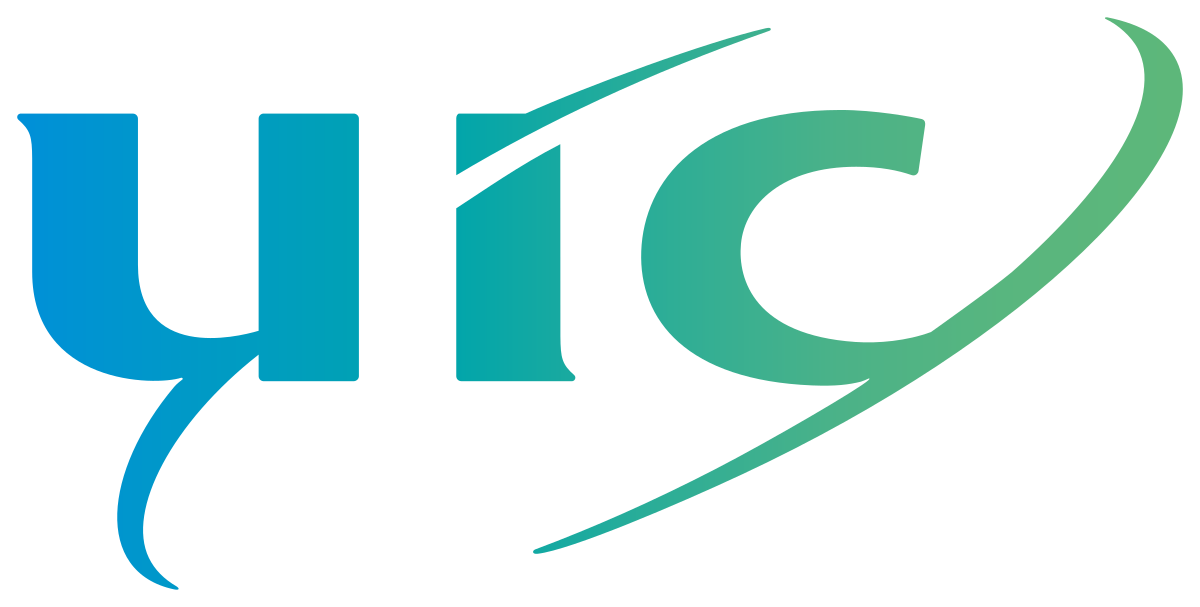SaveGREEN - Back on the rails
30-11-2020
Leaders of the SaveGREEN and rEvERsE projects, WWF-CEE and the International Union of Railways (UIC), respectively, laid the rail tracks of cooperation for the maintenance of ecological corridors and wildlife protection.
Straight to the tracks: railways are 10 to 20 times more efficient than air travel in terms of energy efficiency and greenhouse gas emissions, but, just like most types of infrastructure, they can dissect habitats and, thus, negatively impact the movement of animals and the viability of ecosystems. Understanding this problematic premise, last 18 November the Director-General of the International Union of Railways (UIC), François Davenne, and the Regional CEO of WWF-CEE, Andreas Beckmann, came together on an online ceremony to sign a Memorandum of Understanding (MoU) to cooperate on nature conservation in Central and Southeastern Europe.
Optimism on positive outcomes on the cooperation was undeniable. Mr Davenee undersigned the urgency to act on the matter of how to develop transport while tackling wildlife conservation, stating that “if we want to be the champions of transport, a holistic approach is necessary.” Mr Beckmann, during his turn, indicated that “At WWF-CEE we are happy to partner with UIC to look for ways to limit these impacts as much as possible and to enhance biodiversity conservation on the significant areas of land controlled by the national railway companies that make up the UIC's membership.”
What is at stake?

The Central and Southeastern Europe area is Europe’s treasure chest for nature and, as such, the Green Heart of Europe. From the Carpathian Mountains to the Danube Delta, it includes many of the continent’s greatest wilderness areas, thus giving a home to significant populations of brown bears, grey wolves, lynx, bison and other wild animals.
Nevertheless, a current threat to this natural capital is fragmentation, as infrastructure and other developments criss-cross and dissect natural habitats into even smaller pieces, isolating wildlife populations and decreasing the overall resilience of these ecosystems in the face of climate change.
The WWF 2020 Living Planet Report states that transportation accounts for about 15 % of our ecological footprint. In other words, we need to realise that travelling less should be one of the paths to take. Another one, to travel more efficiently. Our response to the COVID pandemic has in many cases shown that it is possible to limit our travels while, where transportation is needed, public transportation will be an important part of the solution. And here railways have a key role to play.
Most certainly, like other types of infrastructure, railways can dissect habitats and, thus, negatively impact the movement not only of humans but also of animals. Therefore, we have to minimise these impacts as much as possible and include smart design and measures such as green bridges and tunnels that allow the free movement of fauna.
Addressing these challenges is the focus of the Memorandum of Understanding signed between WWF-CEE and the UIC. The agreement focuses geographically on the region of Central and Southeastern Europe, including Bulgaria, the Czech Republic, Hungary, Moldova, Romania, Slovakia, and Ukraine. It foresees the exchange of experience and expertise, as well as cooperation, on biodiversity conservation, particularly with regard to maintaining and enhancing ecological corridors and protecting wildlife.
UIC is currently leading the rEvERsE project — officially, the ‘Ecological effects or railways on wildlife’ project — which offers a contribution to SDG 15 (Life on land). The project aims to offer solutions to facilitate an environmentally friendly development of the railway system in Europe. On its turn, SaveGREEN will bring knowledge exchange and the reach out to stakeholders in the Danube region.
-------------
The International Union of Railways (UIC) is the worldwide professional association representing the railway sector and promoting rail transport with 213 members since 1921.
UIC’s mission:
- Promote rail transport globally with the objective of responding
 effectively to current and future challenges relating to mobility and sustainable development;
effectively to current and future challenges relating to mobility and sustainable development;- Develop and facilitate all forms of international cooperation among members and promote sharing of best practice;
- Promote interoperability and develop and publish solutions to railway system related issues (IRSs);
- Support members in their efforts to develop new business and areas of activity;
- Propose new ways to improve the technical and environmental
performance of rail transport, increase competitiveness and reduce costs.
WWF Central and Eastern Europe (WWF-CEE, formerly WWF International Danube-Carpathian Programme) was established in 1998 to lead, coordinate, and implement WWF’s conservation efforts to preserve, restore and sustainably manage the natural values of the Danube-Carpathian ecoregion — the so-called Green Heart of Europe. WWF’s vision is to build a future in which people live in harmony with nature.
